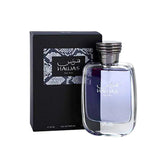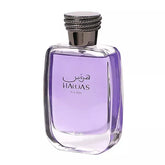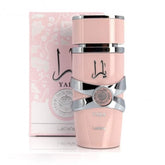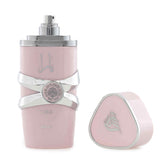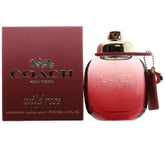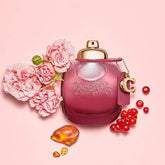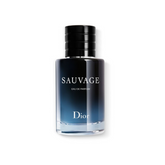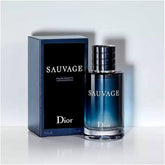Fragrance isn’t just for grown-ups anymore. With the growing popularity of kid’s perfume, many parents are wondering if it’s safe, when to introduce it, and how to choose the right scent for their little ones. Whether it’s a bubblegum-scented spray or a gentle floral mist, perfumes made specifically for kids are designed to add fun and freshness to their daily routine—without compromising on safety.
Why Do Kids Want to Use Perfume?
Children often mimic the behavior of their parents. If they see mom or dad applying perfume daily, they’re likely to want their own version. Perfume also adds a sense of identity and self-care, even for younger children. A light, sweet fragrance can boost confidence and help kids feel clean and refreshed.
But unlike adult perfumes, kids perfumes are specially designed to be mild, fun, and non-irritating.
Is Kids Perfume Safe?
Yes—if used correctly and chosen wisely. Perfumes formulated for kids are usually gentler than those for adults. However, it’s essential for parents to read labels, know their child’s skin sensitivity, and ensure that products meet safety standards.
What to Look For:
- Alcohol-Free: Traditional perfumes contain alcohol, which can dry or irritate sensitive skin. Always opt for alcohol-free versions made for kids.
- Hypoallergenic & Dermatologist-Tested: These labels indicate reduced risk of allergic reactions.
- Paraben-Free & Phthalate-Free: These additives are often found in cosmetics but should be avoided for children’s products.
-
Natural or Organic Ingredients: Choose products with botanical or food-based ingredients, which are safer and gentler on young skin.
When selecting options, it’s also helpful to explore the difference between natural perfumes vs synthetic perfumes to make a more informed decision that prioritizes safety and purity.
Ideal Age to Introduce Kids Perfume
There’s no strict rule, but most pediatricians agree that perfumes can be introduced around age 5 and above, as long as they are formulated for kids. For toddlers and babies, fragrance exposure should be limited to scented lotions or oils designed for their age group.
That said, even for older children, parents should supervise use to avoid over-application or contact with eyes and mouth.
How to Use Kids Perfume Safely
Proper usage is key. Here are a few safety tips to keep in mind:
- Spray on clothes, not skin: This reduces the risk of irritation or allergic reactions.
- Avoid face, eyes, and mouth: Teach your child to spray on the chest area or wrists only.
- Do a patch test: Always test a small area before full use, especially if your child has sensitive skin.
- Use sparingly: One or two sprays are enough. Kids don’t need a strong scent.
-
Store away from heat or direct sunlight: To preserve the quality of the product.
How to Choose the Right Kids Perfume
Not all perfumes labeled “for kids” are created equal. When selecting a product, consider these factors:
1. Fragrance Type
Look for light and pleasant scents. Popular choices include:
- Fruity: strawberry, apple, watermelon
- Sweet: vanilla, marshmallow, candy
- Floral: lavender, rose, jasmine
-
Fresh: citrus, mint, cucumber
Avoid overpowering or musky scents that may feel too strong or mature.
2. Brand Reputation
Stick to trusted brands that specialize in children’s care products. Read reviews and ensure the brand is transparent about ingredients. Many branded perfumes offer dedicated kid-safe lines that balance fun with safety.
3. Packaging
Kids love colorful, playful packaging—but parents should make sure the bottle is durable and spill-proof.
Benefits of Perfume for Kids
While many parents may worry about whether kids perfume is necessary, it can actually have a few surprising benefits:
- Improved hygiene habits: Kids begin to take interest in grooming routines.
- Boost in confidence: A scent they love can make them feel special.
- Mood enhancer: Fragrance can influence emotions, helping kids feel calm or happy.
-
Encourages independence: Allows kids to express themselves and make personal choices.
Common Concerns Parents Have
❓ Will it cause allergies?
If your child has eczema or skin allergies, consult a dermatologist before use. Always do a patch test.
❓ Can boys use perfume too?
Absolutely. There are many kids perfumes for boys with fresh, sporty, or citrus-based notes.
❓ Is it okay for school?
Yes, as long as the scent is subtle. Strong fragrances may not be school-appropriate.
Final Thoughts
Kids perfume can be a delightful addition to your child’s self-care routine—when used wisely. The key is to choose gentle, kid-safe formulations with natural ingredients and ensure proper use. With a focus on fun and safety, parents can introduce fragrance as a joyful and confidence-boosting ritual that children will love.
Before making a purchase, always read labels carefully, check for hypoallergenic features, and consider your child’s skin type. A well-chosen perfume can help your child feel fresh, happy, and uniquely themselves—safely and sweetly.
FAQs
1. Is perfume safe for kids with sensitive skin?
Yes, but it's important to choose hypoallergenic, alcohol-free, and dermatologist-tested kids perfume formulas. Always do a patch test before full application to check for any skin reaction.
2. At what age can kids start using perfume?
Most experts suggest age 5 and above, but only with perfumes made specifically for children. For toddlers or babies, stick to gentle, scented lotions or oils designed for that age.
3. Can kids use adult perfume in small amounts?
It’s not recommended. Adult perfumes often contain alcohol and strong synthetic ingredients that can irritate a child's sensitive skin or trigger allergies.
4. How often should kids use perfume?
A light spritz once a day is enough. Kids should be taught to apply it sparingly and only on clothing, not directly on the skin.
5. Are there natural or organic perfumes for kids?
Yes. Many brands now offer kids perfumes made with plant-based or food-grade ingredients. Look for products labeled “natural,” “organic,” or “paraben-free.”
6. What are the best types of scents for kids?
Mild and fun scents like strawberry, vanilla, apple, cotton candy, citrus, and light florals are popular and safe choices for children.
7. Can boys wear kids' perfume too?
Definitely. There are many kids perfume options made for boys, often with fresh, fruity, or clean scents like lemon, mint, or ocean breeze.
8. How do I store kids' perfume?
Keep the bottle in a cool, dry place away from direct sunlight or heat. Always store out of reach of younger children to avoid accidental spills or misuse.
9. What should I avoid in a kids perfume?
Avoid perfumes containing alcohol, parabens, synthetic dyes, phthalates, and strong artificial fragrances. Always read the ingredient list carefully.
10. Can kids wear perfume to school?
Yes, but choose subtle, light scents that won’t be overpowering in shared spaces like classrooms. Some schools may have fragrance policies, so it's good to check in advance.



